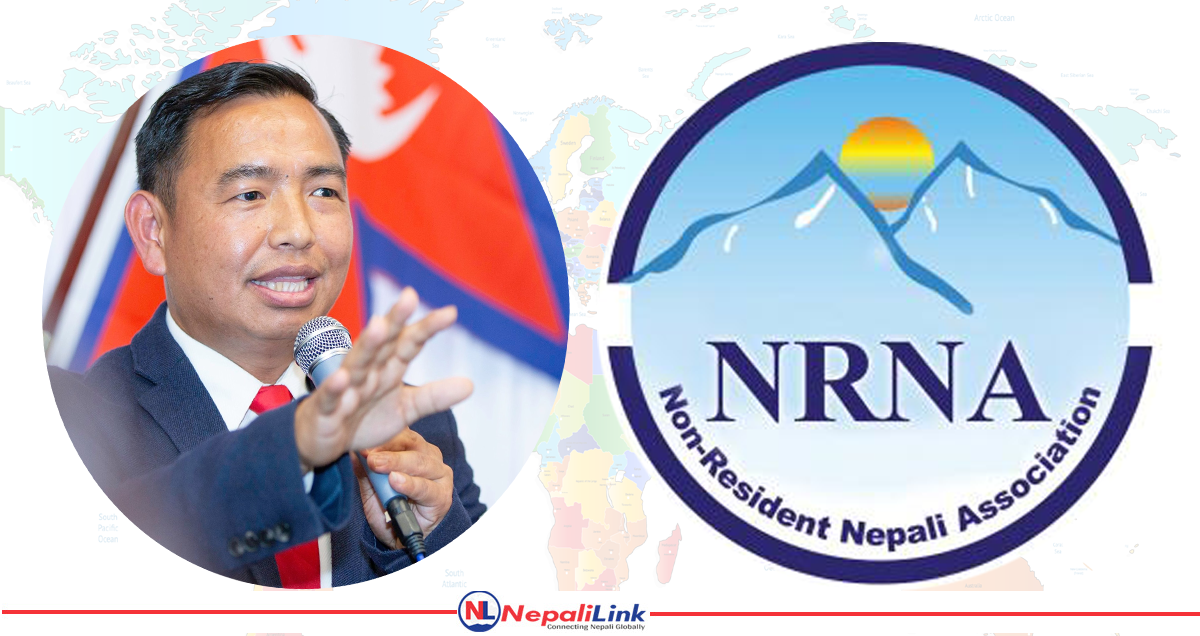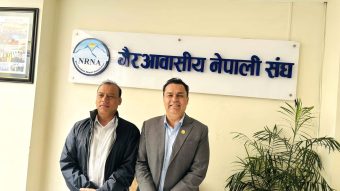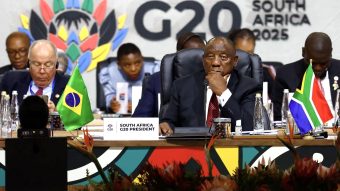Why Does the NRN Need Direct Representation in Nepal Parliament?




In accordance with the mandate of the Supreme Court of Nepal, the Unification General Convention of the Non-Resident Nepali Association (NRNA) was successfully held from 3 to 5 May 2025 at the Hyatt Hotel in Kathmandu. Under the leadership of Mahesh Shrestha, the unified NRNA was formed. The Supreme Court’s Implementation Directorate confirmed that all procedures had been duly completed in line with the Court’s order, certifying the General Convention as legally accomplished. Since the NRNA is registered with the Ministry of Foreign Affairs of Nepal, the Ministry has already issued a circular to all embassies and consulates instructing them to coordinate henceforth with the NRNA led by Mahesh Shrestha.
While many embassies have implemented this directive, a few have not. The main reason is the interference of Nepal’s political parties within the NRNA. Unfortunately, many Nepali organisations abroad have fallen prey to politicisation. One such organisation that has suffered this fate is the NRNA itself. Why has the NRNA become so vulnerable to partisan capture? Are there any ways to free it from the clutches of party politics? This article revolves around these questions.
Supreme Court Mandate and NRNA Convention
The Supreme Court of Nepal’s mandate paved the way for the unification of the NRNA, allowing Nepalis abroad to have a consolidated platform. The Convention, held over three days, ensured compliance with the Court’s directives and demonstrated that the legal framework for a unified association could be successfully implemented. The Ministry of Foreign Affairs’ circular further strengthened the NRNA’s authority, instructing diplomatic missions worldwide to recognise Mahesh Shrestha’s leadership.
Scale of Nepali Migration
The number of Nepalis who have migrated abroad for employment, education, and opportunities is estimated at around eight million, according to 2024 records. In the past year alone, 1.683 million Nepalis went abroad for various purposes. Employment destinations primarily include the UAE, Saudi Arabia, Qatar, and Malaysia, while popular study destinations are Japan, Australia, the United States, Canada, and the UK. In 2023–2024, 23,600 Nepalis went to the UK for study. About 67,000 people permanently left Nepal last year, selling or abandoning property.
Tracing this trend back to 2050/51 BS, it has persisted for over 32 years—longer than one generation. Many children now grow up permanently abroad, explaining why 132,000 parents migrated last year with their children. While some students return, many migrate permanently in search of opportunities. Taken together, the estimate of eight million overseas Nepalis is realistic.
Representation in Parliament: A Missing Voice
Nepal’s federal parliamentary elections occur every five years to select legislators who frame laws, rules, and policies. Out of 275 members, 165 are directly elected and 110 chosen through proportional representation. Each directly elected Member of Parliament represents approximately 109,000 voters.
But where is the representation for the eight million Nepalis living abroad, whose laws and policies are being made without their voices? How can someone who has never been abroad legislate for migrant Nepalis? How many innocent Nepalis are languishing in foreign jails? Why cannot imprisoned Nepalis serve their sentences at home? Does the government’s responsibility end once citizens cross the border? A government whose economy relies on 30% remittances must treat its migrant citizens with dignity and accountability.
Lessons from Other Countries
If Nepal truly wishes to be accountable to its diaspora, it must learn from progressive countries that have created structured mechanisms to ensure overseas citizens are directly represented in national governance.
France: About 2.5 million French citizens living abroad elect 11 Members of Parliament directly from overseas constituencies. Additionally, France allocates 12 Senate seats indirectly to diaspora representatives. This system, formally introduced by President Nicolas Sarkozy in 2010, ensures that French citizens abroad have a voice in both houses of the legislature. The overseas constituencies cover all continents, reflecting the distribution of French nationals worldwide. Citizens abroad can register at consulates and vote in person, by mail, or online, making participation accessible and practical. France’s approach demonstrates that even a highly centralised country can incorporate a dispersed diaspora into its democratic processes.
Italy: Italy pioneered formal overseas representation in 2001 through a constitutional amendment. Italian citizens abroad are divided into four constituencies: Europe, South America, North and Central America, and Africa–Asia–Oceania. This framework allows 8 MPs in the lower house and 4 in the upper house to represent Italians living outside the country. The initiative was spearheaded by Mirko Tremaglia, whose “Tremaglia Law” ensures that the rights of Italians abroad are legally recognised. The Italian system demonstrates how diaspora representation can be proportionally distributed based on population density in each region, ensuring equity and fairness.
Other countries: Several other nations have also developed mechanisms for overseas representation. Tunisia has six MPs elected by citizens abroad, Algeria has four, Cape Verde three, Portugal two, Mozambique two, Colombia one, Croatia one, and Romania one. These examples show that countries of varying sizes, geographies, and populations recognise the importance of giving their diaspora a legislative voice. In addition to direct representation, many of these countries facilitate voting rights, consular engagement, and political participation in domestic policy-making, allowing citizens abroad to influence decisions that impact them and their families back home.
These global models provide valuable lessons for Nepal: a country with an estimated eight million citizens abroad, contributing significantly to its economy through remittances, must also ensure these citizens are empowered politically. Direct representation, accessible voting mechanisms, and proportionate allocation of parliamentary seats are proven solutions that can strengthen accountability, reduce political interference in diaspora organisations, and integrate overseas Nepalis fully into the democratic process.
Nepal’s Narrow Approach to Its Diaspora
Despite these global examples, Nepal remains indifferent. Restrictive citizenship laws, flawed implementation of Non-Resident Nepali citizenship, and denial of voting rights reflect a policy of exclusion. Some countries even establish separate ministries for their diaspora—Israel, Haiti, Serbia, Mali, Syria, Yemen—ensuring rights, welfare, and protection. Nepal, however, risks rendering its own people foreigners.
Granting NRN citizenship without political rights is meaningless. The definition of NRN excludes South Asia, so fears of mass migration from neighbours such as India are unfounded. For Nepalis who have crossed seven seas, political rights pose no threat.
Why Nepal Needs Diaspora Representation
Nepal should arrange for at least five MPs from the diaspora through the NRNA or another mechanism. According to the 2021 census, Nepal’s population is 29.2 million, with 275 MPs—each representing roughly 106,000 people. If 8 million citizens abroad were represented proportionately, around 75 MPs should be directly elected from the diaspora. Comparing with France, where 2.5 million citizens abroad elect 11 MPs, Nepal would need to allocate at least 35 seats.
The Supreme Court of Nepal, in March 2018 (Chaitra 7, 2074 BS), directed the government to enable citizens abroad to vote in national elections. Direct overseas constituencies, proportional allocation, or nominations through the NRNA could all serve as viable solutions.
Conclusion: A Call to Action
Currently, diaspora issues reach Parliament only through lobbying political parties, trapping the NRNA in partisan politics. This deprives the diaspora of fundamental rights.
The solution lies in establishing direct diaspora representation in Parliament—whether through the French or Italian model, or via the NRNA. This would ensure voting rights for NRNs, reduce political interference in the NRNA, strengthen accountability to citizens abroad, and fulfil the Supreme Court’s mandate.
Since the NRNA’s establishment in 2003, no one has seriously advocated from this perspective. Now, every NRNA leader and activist must raise their voice and campaign vigorously to ensure that among the eight million overseas Nepalis, directly elected NRN MPs finally sit in Nepal’s Parliament.
–Biswasdip TIGELA
(The author holds a Master’s degree in International Relations from Canterbury University, UK, and is a researcher in electoral systems. He also serves as Vice President of the NRNA International Coordination Council.)
सम्बन्धित सामग्रीहरू
हाम्रो सिफारिस
- १
- २
- ३
- ४
- ५











